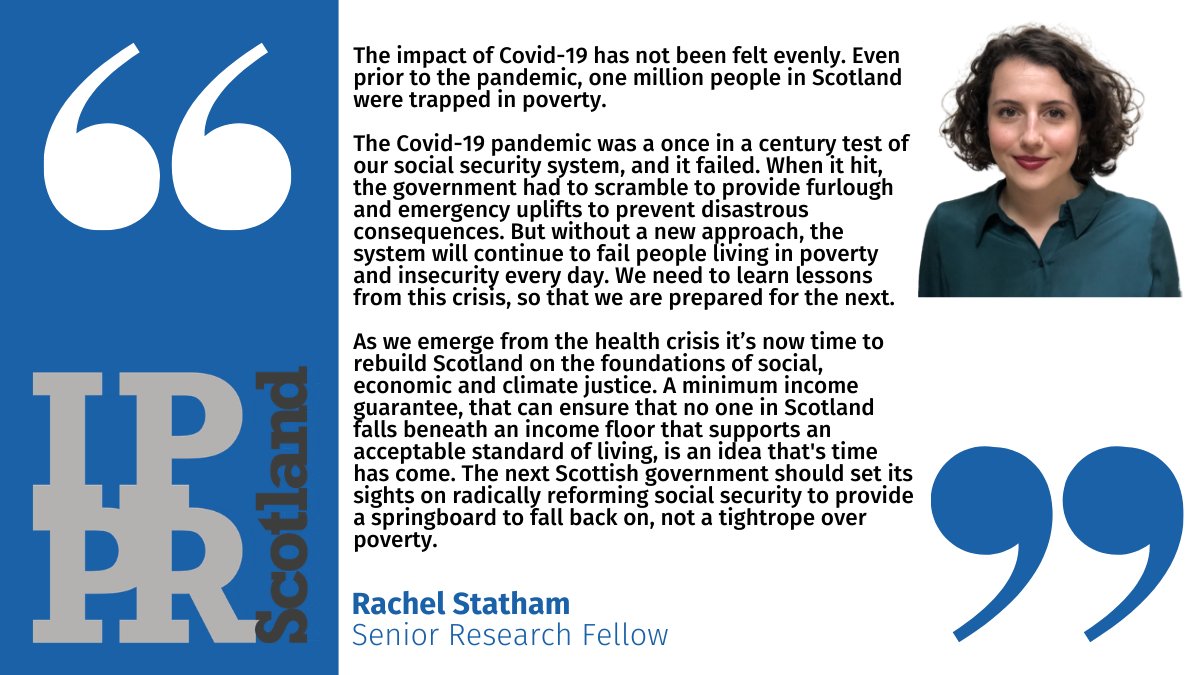Securing a living income in Scotland: Towards a minimum income guarantee
26/03/2021
News
- Satwat Rehman, CEO of OPFS

IPPR Scotland have published a new report ‘Securing a living income in Scotland: Towards a minimum income guarantee’. In the report they set a new direction for social security provision in Scotland, that sets their sights on securing a ‘living income’ for all, delivered through a minimum income guarantee, alongside action to deliver good work for more people and to reduce costs through stronger collective services.
Satwat Rehman CEO of OPFS said:
“IPPR Scotland today published ground-breaking research which recognises the unequal and disproportionate impact of COVID-19 on different groups in society. This report comes in the same week when new statistics published by the Scottish Government show that across all three measures of poverty, children in single parent households face the highest risk of poverty. Sadly 38% of children in single parent families live in poverty compared to 24% of all children.
As the impact of the pandemic becomes clearer, we believe radical action is needed, to ensure that all parents have an adequate income that they can rely on to feed their children. We support IPPR’s idea of a ‘minimum income guarantee’ as a universal guarantee, delivered through a targeted payment for those who need it. We should begin by doubling the value of the Scottish Child Payment at the start of the next Parliament, and again to £40 a week by the end of the term, paid for by a new social renewal supplement on higher rate taxpayers. The idea of a premium for single parent and disabled families in receipt of the Scottish Child Payment would show that as a society we find child poverty in a country as rich as Scotland unacceptable.”
Impact of COVID-19
If Scotland is to learn the lessons of COVID-19 & take a new, ambitious path, then it should commit to introducing a minimum income guarantee & an income floor beneath which nobody should fall, so everyone can feed themselves & their family, heat their home, & live with dignity.
